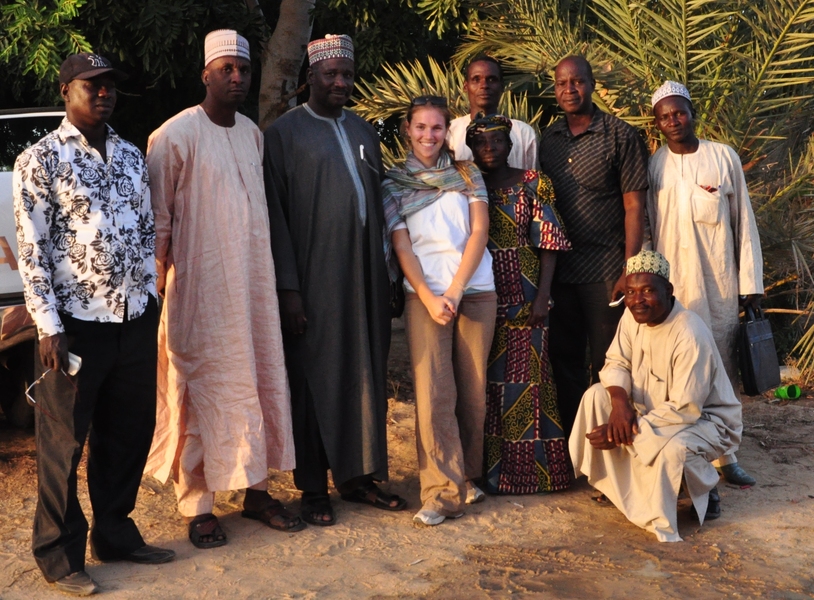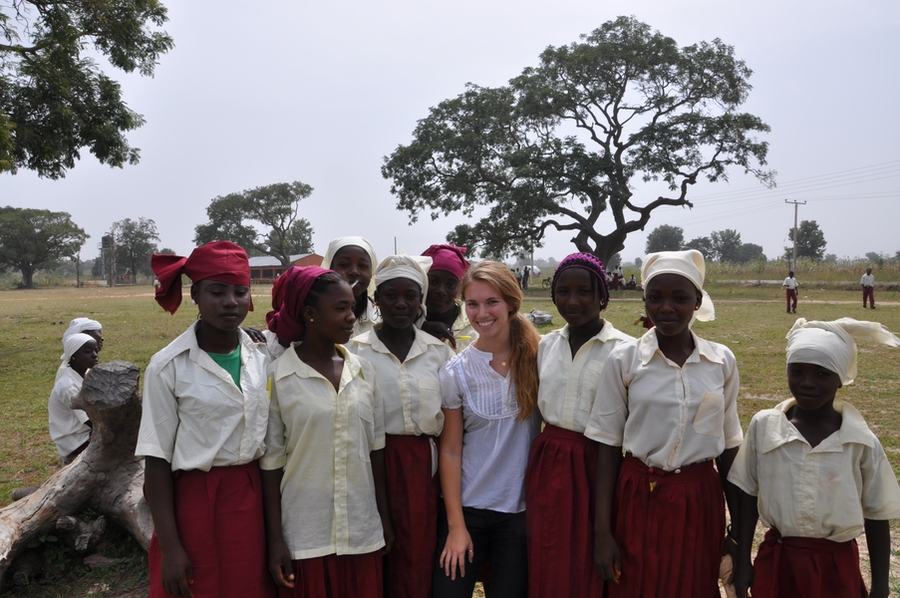Nigeria is one of just three countries where polio remains endemic, in part because many families there don’t comply with government vaccination programs. In a quest to find out why, Leah Rosenzweig undertook a research project, expecting to find that distrust of government was the root cause.
But Rosenzweig, an MIT Political Science doctoral candidate, was surprised to discover a very different explanation. “Using qualitative and quantitative data, my coauthors and I found that distrust of government was not a significant variable,” she explains. “Most people actually know that the polio vaccination is good for them. But when the state and international organizations arrive at citizens’ doorsteps to vaccinate kids, citizens realize it’s a rare opportunity for them to bargain with the state. In this way they can make their voices heard about basic health care, malaria drugs, and other public services that they really need. We think this bargaining motive explains a lot of the non-compliance.”
In other words, declining a vaccination turned out to be a form of political participation — a way for communities to convey their opinions and desires to their leaders.
“The question of participation is very interesting,” says Rosenzweig. “We often think of political participation very narrowly — voting, campaigning, basically electoral behavior. But in some contexts, particularly in the developing world, participation is often practiced outside of electoral cycles and systems, especially in authoritarian and transitional countries.”
For the love of political fieldwork
Rosenzweig has conducted related studies in several African nations, including a project through the MIT Governance Lab that tested different Facebook advertisements to evaluate what types of messaging are most effective in encouraging online engagement and political action among Kenyan citizens.
“GOV/LAB offers great opportunities for graduate students to conduct impactful field work with organizations online and in the field,” she notes.
Rosenzweig is currently pursuing dissertation research in Tanzania, a dominant-party state that may be imminently transitioning to a multi-party democracy. She hopes to shed light on why Tanzanians participate in politics in the absence of bribery or coercion. “Why,” asks Rosenzweig, “do African citizens, especially the marginalized poor who incur relatively higher costs, travel long distances and stand in line for hours to vote when they are disappointed by and distrustful of the state?”
She theorizes that citizens participate to gain status, as people who care about their communities and want to help bring in government services. “I’ve designed a couple of experiments to look at whether that’s really the case, how social influence might motivate citizens to participate and vote, and whether their voting decisions might change based on this social pressure.”
At MIT, working on problems that affect others
As an undergraduate at Georgetown University, Rosenzweig considered pursuing a law degree. But her long-standing interest in social justice spurred her to join a field research project evaluating impacts of fair-trade certification on cocoa farmers in Ghana. “That was my first exposure to political science fieldwork, and the broad spectrum of questions that can be asked within the discipline. I really enjoyed talking to farmers at their homes and hearing their questions, concerns, and opinions,” she recalls.
That love of first-hand data gathering was a driver for Rosenzweig to choose MIT Political Science for her doctorate. “The professors here are very approachable and great mentors. My advisor, Professor Lily Tsai, who directs the GOV/LAB, is incredibly supportive and sets an example of working hard on important problems that directly affect peoples’ lives.” Rosenzweig also appreciates “the many opportunities at MIT to get funding for projects that take you into the field before your dissertation.”
After graduation, Rosenzweig hopes to find an academic post emphasizing results-oriented fieldwork and research. “When I interview people about their political behaviors and preferences,” she says, “they often ask me, ‘What will you do with this information? How will this help me?’ I hope that making their voices heard — through academic, policy, and popular press media — will contribute to interventions and policy changes that have a positive impact on their lives.”







